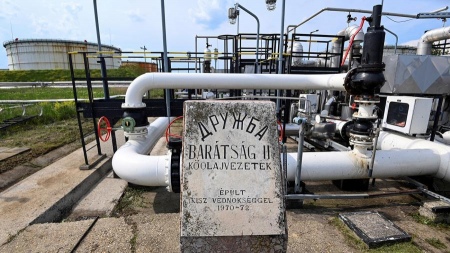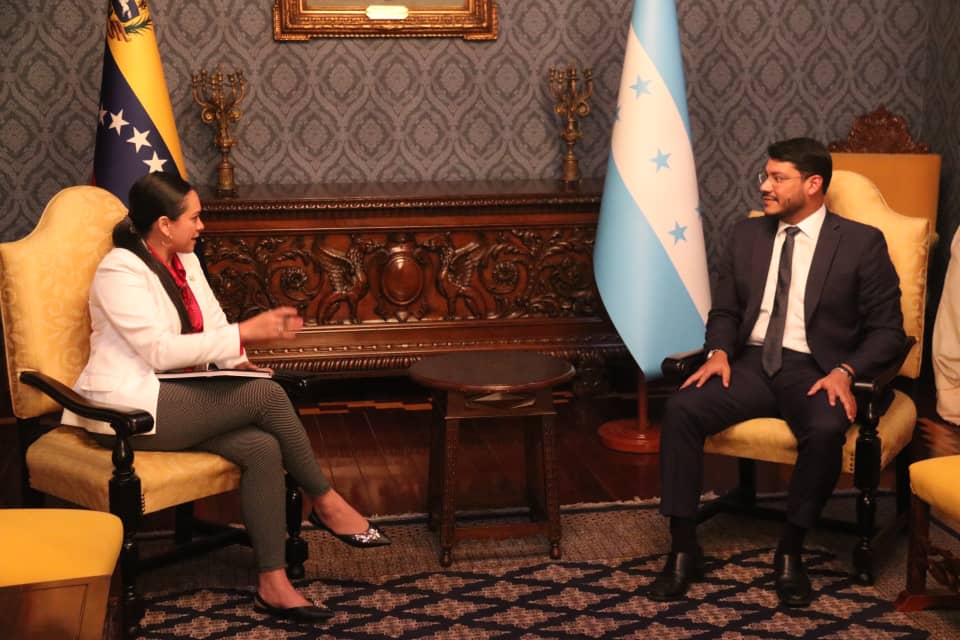As of this Monday, Russia will not be able to export oil transported by sea to Europe by virtue of the embargo agreed by the 27 nations that make up the European Union, as a sanction for the military campaign launched by the Kremlin against Ukraine on February 24 of this year. .
The embargo will affect 90% of European imports of Russian oilthat is, about 100 million tons or 730 million barrels per year, according to what the president of the European Commission, Ursula von der Leyen, said today in Brussels.
The declared objective of the European embargowhich from next February 5 will also affect imports of crude oil derivatives, is to undermine Russia’s economic ability to finance its military operations in Ukrainea.
Finance ministers from the Group of 7 (G-7) and Australia have put in place a price cap for Russian-origin crude oil and petroleum products to be implemented by each coalition member, the State Department reported. from United States.
In a joint statement, the G-7 noted that “our jurisdictions will prohibit the services of our own suppliers that allow the maritime transport of crude oil and petroleum products of Russian origin globally.but with the exception of crude oil or petroleum products of Russian origin purchased at or below a specified maximum price“.
Later, they remarked that “we reaffirm our intention to phase out Russian-origin crude oil and oil products from our domestic markets. This commitment remains unchanged by the implementation of the price cap. Instead, the price cap is designed to allow our service providers to support shipments of Russian-origin crude oil and petroleum products to other countries, allowing for stable energy supplies and constraining revenue from Russia.”
The joint statement specifies that “the Russian-origin crude oil price cap will take effect in all our jurisdictions on or very shortly thereafter on December 5, 2022. Our respective regulations are expected to include a time-limited exception for transactions involving oil that is loaded onto a vessel at the port of loading before December 5, 2022.”
The G-7 countries reiterated the decision that “the maximum price for Russian-origin petroleum products will enter into force on February 5, 2023. We will announce the maximum prices for Russian-origin petroleum products (one for high-value refined products and another for low-value refined products) separately.
“In the event of a price review, we anticipate including a grandfathered form to allow transactions that were concluded prior to the review in accordance with the previous price cap. The Price Cap Coalition may also consider taking additional steps to ensure the effectiveness of the price cap.” maximum price,” the statement clarified.
Added to the veto on imports is the agreement of the countries of the European Union (EU) to set a cap on the price of Russian oil of 60 dollars per barrel.
Added to the veto on imports is the agreement of the countries of the European Union (EU) to set a cap on the price of Russian oil of 60 dollars per barrel
Although in view of the embargo this measure does not affect the community bloc, it will have an impact on Russian crude exports, since if it is sold at a higher price than the one set, it cannot be transported by European shipping companies or insured by EU companies.
The EU agreement establishes that if the market price falls below $60 a barrel, the ceiling will be updated in such a way that it is at least 5% below what it has on the market.
This same set of measures has been adopted by the G7 countries and Australia.
In response to the European embargo, Russia has declared that it will not lack buyers for its oil and that it will redirect its crude exports to Asia.
In response to the European embargo, Russia has declared that it will not lack buyers for its oil and that it will redirect its crude exports to Asia.
“We will sell oil and crude oil derivatives only to countries that work with us according to the laws of the market, even if we are forced to reduce extractions somewhat,” Russian Deputy Prime Minister Alexander Novak said on Sunday.
















